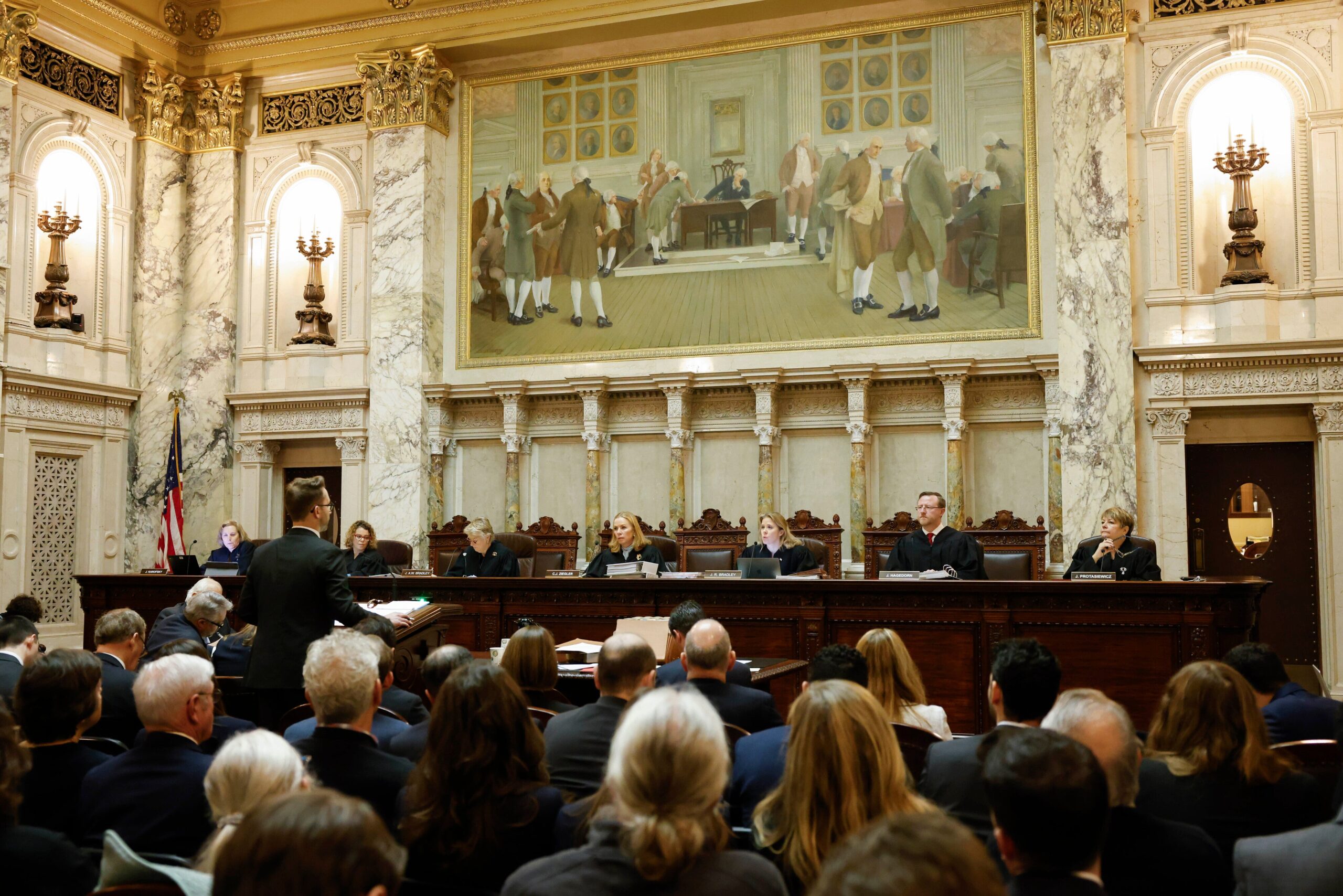The Wisconsin Supreme Court has ordered a circuit court to review whether city officials in Eau Claire properly extended cash grants for a new performing arts center and mixed use building development known as the Pablo Center at the Confluence in the city’s downtown.
A group of taxpayers represented by the conservative law firm Wisconsin Institute for Law and Liberty sued in 2015 alleging the city failed to justify creating tax incremental districts to fund the project and cash grants for renovation work amounted to illegal property tax breaks for the developer.
Eau Claire County Circuit Judge Paul Lenz dismissed the case, finding taxpayers failed to show standing.
Stay informed on the latest news
Sign up for WPR’s email newsletter.
The state Supreme Court in a 5-2 decision Wednesday affirmed Lenz’s decision but ordered a lower court to review how the city determined the tax districts were necessary.
Eau Claire Assistant City Attorney Doug Hoffer said in an interview with WPR that the decision is an important win for economic development in the city and for hundreds of other municipalities in the state currently using TIF districts for redevelopment projects.
“A negative decision would have impacted an important economic development tool,” said Hoffer. “Tax increment financing is the most commonly used economic development tool available to local communities and it’s a vital tool in spurring economic development and job growth.”
WILL President Rick Esenberg released a statement Wednesday following the ruling:
“We are disappointed by the decision of the court,” said Esenberg. “It is our view that TIF abuse is a problem in the state of Wisconsin that invites local governments to provide favorable tax treatment for private developments. While today’s decision leaves taxpayers with the limited remedy of certiorari review, it does not ensure that municipalities will scrupulously adhere to the limits placed on TIF districts by the Legislature.”
In a follow up interview with WPR Esenberg said while the state’s high court has asked the Eau Claire County Circuit Court to review parts of the city’s decision to create the TIF district, he said it’ll ultimately be up to the state Legislature to decide whether municipalities are abusing the funding mechanism.
“We disagree that that is a proper reading of the law but it is now the reading of the law and I think it’s time for the Legislature to perhaps take a fresh look at these tax increment districts and ask whether they’ve gotten out of hand and need to be reigned in,” he said.
The state Department of Justice has warned if the taxpayers prevail it would jeopardize numerous economic development projects, including incentives for Foxconn Technology Group’s Mount Pleasant campus.
Editor’s note: This story was last updated at 1:46 p.m. Wednesday, June 6, 2018, with comments from Rick Esenberg and Doug Hoffer.
Wisconsin Public Radio, © Copyright 2024, Board of Regents of the University of Wisconsin System and Wisconsin Educational Communications Board.





